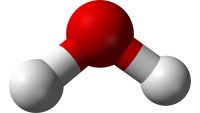Water is one of the most essential substances for life on Earth, covering approximately 71% of the planet’s surface. It exists in various forms, including oceans, rivers, lakes, glaciers, and groundwater, and plays a crucial role in supporting ecosystems, sustaining agriculture, and meeting human needs. Water is a universal solvent, capable of dissolving a wide range of substances and facilitating chemical reactions essential for life processes.
The water cycle, also known as the hydrological cycle, describes the continuous movement of water between the atmosphere, land, and oceans through processes such as evaporation, condensation, precipitation, and runoff. This cycle regulates Earth’s climate, distributing heat and moisture across the planet and influencing weather patterns. Human activities, such as deforestation, urbanization, and industrialization, can disrupt the natural water cycle, leading to issues such as droughts, floods, and water scarcity.
Access to clean and safe drinking water is essential for human health and well-being. However, billions of people around the world still lack access to adequate sanitation and clean water sources, leading to waterborne diseases, environmental degradation, and socioeconomic challenges. Sustainable water management practices, including conservation, pollution prevention, and equitable distribution, are crucial for ensuring the availability and quality of water resources for current and future generations.

What about water interesting facts? Let’s take a look at these 10 interesting facts about water.
- Universal Solvent : Water is often referred to as the “universal solvent” because it has the ability to dissolve a wide range of substances, including salts, sugars, gases, and some solids. This property makes water essential for many biological and chemical processes.
- Unique Density Behavior : Unlike most substances, water reaches its maximum density at approximately 4 degrees Celsius (39.2 degrees Fahrenheit) before becoming less dense as it freezes. This unique density behavior allows ice to float on water, which is crucial for aquatic ecosystems.
- Three States of Matter : Water exists in three states of matter: solid (ice), liquid (water), and gas (water vapor). This versatility allows water to cycle continuously through the environment, playing a vital role in Earth’s climate and ecosystems.
- Most Abundant Compound : Water is the most abundant compound on Earth’s surface, covering approximately 71% of the planet’s surface in the form of oceans, seas, lakes, rivers, and glaciers.
- Unique Chemical Structure : The chemical structure of water, with its bent shape and polar covalent bonds, gives it unique properties such as surface tension, cohesion, and adhesion, which are essential for life and many natural processes.
- High Surface Tension : Water has a high surface tension, allowing small insects like water striders to walk on its surface without sinking. This property also enables water to form droplets and maintain shape, making it essential for many biological functions.
- Incredible Heat Capacity : Water has a high heat capacity, meaning it can absorb and retain large amounts of heat energy without significant temperature changes. This property helps regulate Earth’s temperature and climate, making it suitable for life.
- Vital for Life : Water is essential for all forms of life on Earth. It serves as a solvent, a medium for chemical reactions, a transportation medium, and a habitat for countless organisms. Human beings, like all living organisms, depend on water for survival.
- Renewable Resource : Water is a renewable resource that cycles continuously through the environment in the water cycle, driven by processes such as evaporation, condensation, precipitation, and runoff. However, human activities can deplete or pollute water sources, leading to water scarcity and environmental degradation.
- Water Memory Controversy : Some proponents of alternative medicine claim that water has memory and can retain the properties of substances it has been in contact with, even after dilution. However, this idea is not supported by scientific evidence and is widely regarded as pseudoscience.
Water, with its remarkable properties and ubiquitous presence, stands as an essential element for life on Earth. Beyond its role as a vital substance for biological processes, water shapes landscapes, influences climates, and sustains ecosystems. Its unique chemical structure, versatile states of matter, and cyclical nature in the hydrological cycle make it a fundamental force driving Earth’s systems.
Yet, despite its abundance, water resources face increasing pressures from pollution, depletion, and climate change, underscoring the need for sustainable management practices and global cooperation to ensure equitable access to clean water for all. As we continue to explore and understand the complexities of water, its importance as a precious resource becomes ever more apparent, reminding us of the profound interconnectedness of all life and the imperative to preserve and protect the invaluable gift of water for future generations.



